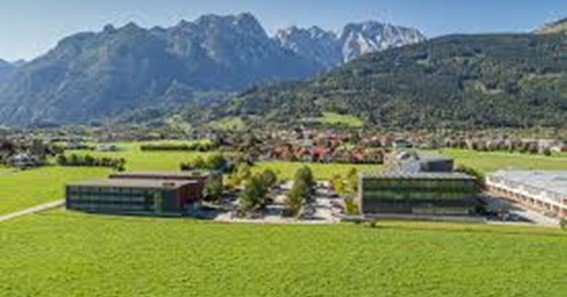When it comes to pursuing higher education in Austria, FH Salzburg (Fachhochschule Salzburg) has built a reputation for academic excellence, industry-focused programs, and a vibrant campus culture. Located in the picturesque region near the city of Salzburg, this University of Applied Sciences stands out for its blend of rigorous curricula and hands-on learning experiences. In this blog, we’ll delve into FH Salzburg’s history, course offerings, campus highlights, and practical information for prospective students.
A Brief Overview of FH Salzburg
-
Location and History
- Establishment: FH Salzburg was founded in 1995.
- Campuses: The main campuses are located in Urstein (Puch bei Hallein) and Kuchl, both of which are surrounded by stunning natural landscapes.
- Proximity to Salzburg: Being only a short distance from the historic city of Salzburg provides students easy access to cultural and recreational opportunities.
-
Academic Profile
- Core Disciplines: The institution focuses on applied sciences, offering degrees in areas like Business, Information Technology, Design & Product Management, Social Work, Tourism, and Health Sciences.
- Undergraduate and Graduate Programs: FH Salzburg provides Bachelor’s and Master’s programs, many of which are taught in German, although certain specializations and international tracks may offer English-taught modules.
-
Industry Collaboration
- Practical Orientation: Known for its strong ties to industry partners, FH Salzburg ensures that the curriculum keeps pace with real-world demands.
- Internships and Projects: Many programs require internships or collaborative projects with local and global businesses, giving students a head start in networking and career development.
Student Life and Campus Facilities
-
Modern Infrastructure
- Well-Equipped Labs: Students have access to cutting-edge labs and studios, particularly beneficial for subjects like technology, design, and health sciences.
- Libraries: Comprehensive library facilities offer both digital and physical resources to support academic success.
-
International Community
- Exchange Opportunities: Through partnerships with universities worldwide, FH Salzburg welcomes international students and offers local students the chance to study abroad.
- Cultural Events: From international week programs to language tandems, students can immerse themselves in a global learning environment.
-
Recreational Activities
- Proximity to Nature: With the Alps practically at their doorstep, students can indulge in hiking, skiing, or simply exploring the scenic landscapes of the Salzburg region.
- Student Clubs and Events: The student union (ÖH) organizes social events, workshops, and sports clubs, ensuring there’s always something happening on campus.
Admissions and Application Process
-
Entry Requirements
- Educational Background: A secondary school certificate (for Bachelor’s) or an undergraduate degree (for Master’s) is typically required.
- Language Proficiency: Most programs require German proficiency (B2 or C1 level), but a few English-based tracks may ask for TOEFL or IELTS scores.
-
Application Deadlines
- Varies by Program: Deadlines differ depending on the study field and intake cycle. Prospective students should check the official FH Salzburg website for accurate, up-to-date information.
-
Online Application
- Digital Documentation: Students can submit transcripts, certificates, and other required documents through the online portal.
- Interview or Aptitude Test: Some courses may require additional tests or interviews to assess suitability.
-
Tuition Fees and Scholarships
- EU/EEA Students: Tuition is generally low, with possible additional administrative fees.
- Non-EU Students: Fees may be higher, and there could be opportunities for scholarships depending on academic merit and funding availability.
Career Prospects and Alumni Network
- Industry-Ready Graduates: The applied nature of FH Salzburg’s programs produces graduates who can quickly adapt to professional environments.
- Strong Alumni Community: Alumni networks offer mentorship, job leads, and continued collaboration with former classmates and professors.
- Entrepreneurial Support: From startup incubators to innovation workshops, FH Salzburg encourages entrepreneurship and creative thinking among students.
5 Frequently Asked Questions (FAQs)
-
Q: What language proficiency is needed to study at FH Salzburg?
A: Most Bachelor’s and Master’s programs require German proficiency at a B2/C1 level. Certain programs or international tracks may be offered in English, in which case English language tests like IELTS or TOEFL may be required. -
Q: Does FH Salzburg offer scholarships for international students?
A: Yes, there are scholarship options for eligible EU/EEA and non-EU students. Availability often depends on academic merit, field of study, and specific funding bodies. -
Q: What is student life like outside of academics?
A: The student union organizes various cultural events, workshops, and sporting activities. The campus’s proximity to the Alps also allows for hiking, skiing, and other outdoor pursuits. -
Q: Can I transfer credits from another university to FH Salzburg?
A: FH Salzburg typically evaluates transfer credits on a case-by-case basis. Prospective transfer students should contact the admissions office with detailed transcripts and course descriptions. -
Q: How do I find off-campus accommodation near FH Salzburg?
A: Many students use online housing portals, social media groups, and the university’s accommodation bulletin board. Early planning is advisable, as rentals can be in high demand.










